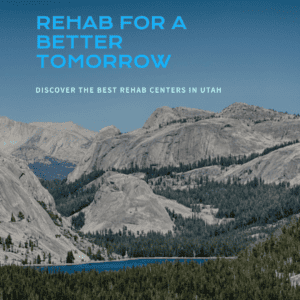 Welcome to our comprehensive guide on rehab centers in Utah. If you or a loved one is struggling with addiction, it’s important to find the best rehab center to ensure a successful recovery. With so many options available, it can be overwhelming to know where to start. That’s why we’ve put together this comprehensive guide to help you understand what to look for when choosing a rehab center in Utah.
Welcome to our comprehensive guide on rehab centers in Utah. If you or a loved one is struggling with addiction, it’s important to find the best rehab center to ensure a successful recovery. With so many options available, it can be overwhelming to know where to start. That’s why we’ve put together this comprehensive guide to help you understand what to look for when choosing a rehab center in Utah.
Understanding Rehab Centers in Utah
Utah is home to a variety of rehab centers that offer substance abuse treatment programs. These programs primarily aim to treat individuals struggling with addiction, substance abuse disorders, and co-occurring mental health issues. The most common type of treatment programs offered in Utah rehab centers include:
| Treatment Program | Description |
|---|---|
| Inpatient Treatment or Residential | Provides 24-hour medical care at a rehab facility |
| Intensive Outpatient Treatment (IOP) | Allows individuals to live at home while receiving treatment |
| Outpatient Treatment (OP) | A step down from IOP that requires fewer hours per week |
| Detoxification | Medically supervised process of removing harmful substances from the body |
| Partial Hospitalization (PHP) | Provides day-long treatment with access to medical staff and mental health professionals |
Utah rehab centers employ various approaches and therapies to address addiction and substance abuse disorders. Some of the common therapies used include cognitive-behavioral therapy (CBT), dialectical behavior therapy (DBT), Eye Movement Desensitization (EMDR) and more. Each rehab center has its unique approach to treatment, and some may be a better fit for certain individuals based on their personal needs and preferences. More on these therapies below.
Factors to Consider When Choosing a Rehab Center
Choosing the best rehab center is a critical step toward successful recovery from addiction. However, with so many rehab centers in Utah, selecting the right one can be overwhelming. Here are some essential factors to consider when making your decision:
| Factor | Description |
|---|---|
| Personalized Treatment Plans | Look for a rehab center that offers customized treatment plans based on your specific needs. This approach increases the chances of successful recovery and reduces the risk of relapse. |
| Staff Qualifications | The qualifications and experience of the rehab center’s staff are crucial. Check if the facility employs certified therapists and licensed medical professionals who specialize in addiction treatment. Meet the staff at Liberty Addiction Recovery. |
| Location | The location of the rehab center can impact your recovery journey. Consider choosing a center that is far away from your usual environment to minimize distractions and triggers. |
| Amenities | The amenities offered by the rehab center can play a role in your treatment experience. Look for a facility that provides comfortable accommodations, well-balanced meals, and recreational activities that complement your treatment program. |
| Length of Program | The length of the rehab program can vary depending on the center and your specific needs. Choose a program that allows you to progress at your own pace and provides ample time for recovery. |
By considering these factors, you can narrow down your options and select a rehab center that best suits your needs. Keep in mind that a well-informed decision can significantly impact your chances of overcoming addiction and leading a healthier life.
 Evidence-Based Therapies in Utah Rehab Centers: A Comprehensive Guide
Evidence-Based Therapies in Utah Rehab Centers: A Comprehensive Guide
Utah rehab centers prioritize offering treatments rooted in evidence-based therapies. These modalities, backed by rigorous scientific research, have been proven effective in addressing substance abuse issues. Here’s a detailed listicle of the most common evidence-based therapies available in these centers, along with a few additional ones to consider:
1. Cognitive-Behavioral Therapy (CBT)
- Description: This therapeutic approach targets negative thought patterns and behaviors that lead to substance abuse. By recognizing and adjusting these patterns, individuals can make healthier decisions.
2. Dialectical Behavior Therapy (DBT)
- Description: An advanced form of CBT, DBT infuses cognitive-behavioral techniques with mindfulness practices. It aids individuals in regulating their emotions and managing stress, which can be critical for those struggling with substance abuse.
3. Motivational Interviewing
- Description: Through this person-centered approach, therapists help patients unearth intrinsic motivations for positive change. It empowers individuals to navigate challenges and embrace recovery willingly.
4. Group Therapy
- Description: Group therapy gathers individuals with similar struggles, facilitating shared experiences and mutual support. This communal setting fosters understanding, accountability, and camaraderie, which can be instrumental in the recovery process.
5. Family Therapy
- Description: Addiction affects not just the individual but also their family. Family therapy aims to heal strained relationships and create a supportive environment at home, promoting sustained recovery.
6. Recreational Therapy
- Description: Engaging in recreational activities can be therapeutic. This method integrates physical, creative, or leisure activities into the recovery process, encouraging patients to rediscover joy and purpose outside of substance use.
7. Contingency Management
- Description: This therapy offers tangible rewards (like vouchers or privileges) to patients who demonstrate positive behaviors, such as staying drug-free. It capitalizes on positive reinforcement to motivate change.
8. Relapse Prevention Training
- Description: Recognizing potential triggers and devising strategies to handle them can be pivotal. This training equips individuals with the tools to prevent setbacks and maintain sobriety.
By incorporating these therapies into tailored recovery plans, Utah rehab centers offer holistic and effective treatment pathways. Combining various therapeutic modalities increases the chances of successful, lasting recovery, ensuring individuals receive the comprehensive support they need.
The Importance of Evidence-Based Therapies
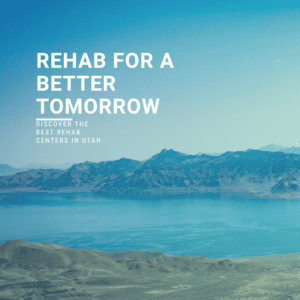 Substance abuse treatment is a complex process that requires a comprehensive approach. Evidence-based therapies have been shown to be effective in treating substance abuse because they address the underlying issues that contribute to addiction.
Substance abuse treatment is a complex process that requires a comprehensive approach. Evidence-based therapies have been shown to be effective in treating substance abuse because they address the underlying issues that contribute to addiction.
“Evidence-based therapies provide a structured and targeted approach to treating addiction, and have shown to be effective in helping individuals develop coping skills and achieve sustainable recovery.”
– Dr. John Smith, Addiction Specialist
By incorporating evidence-based therapies into rehab programs, Utah rehab centers can help individuals develop the skills and tools needed to overcome addiction and maintain long-term recovery.
Holistic Approach to Rehabilitation in Utah
Many Utah rehab centers take a holistic approach to addiction recovery, recognizing that addiction can take a toll on an individual’s physical, mental, and emotional health. Holistic programs aim to address all aspects of addiction and provide a comprehensive treatment plan that caters to the individual’s unique needs.
Some Utah rehab centers offer a range of activities that promote physical health, such as yoga, meditation, and fitness programs. These activities help individuals build strength, stamina, and flexibility while also reducing stress and anxiety levels. Holistic rehab centers also prioritize mental and emotional well-being, offering therapy sessions that incorporate art, music, and other creative outlets.
While traditional rehab centers focus mainly on detoxification and individual therapy, holistic rehab centers place an emphasis on community-building and peer support. Group activities such as group therapy and peer support groups help individuals connect with others who are going through similar experiences, providing a sense of camaraderie and support.
Overall, Utah rehab centers that adopt a holistic approach aim to provide individuals with a well-rounded treatment plan that promotes physical, mental, and emotional well-being. A holistic approach recognizes that addiction is a complex disease that requires a comprehensive solution.
Finding the Best Utah Rehab Center for Specific Addictions
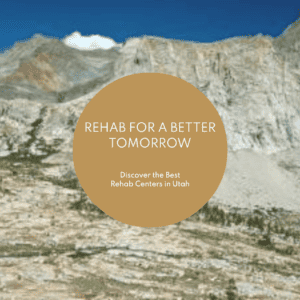 Choosing a rehab center that is tailored to the specific addiction you or your loved one is struggling with can greatly increase the chances of successful recovery. While many rehab centers in Utah offer general substance abuse treatment programs, it is important to find one that specializes in your specific addiction.
Choosing a rehab center that is tailored to the specific addiction you or your loved one is struggling with can greatly increase the chances of successful recovery. While many rehab centers in Utah offer general substance abuse treatment programs, it is important to find one that specializes in your specific addiction.
For example, if you or your loved one is struggling with alcoholism, it is important to find a Utah rehab center that offers specialized treatment plans for alcohol addiction. The same goes for drug addiction, gambling addiction, and other specific addictions.
When searching for a rehab center in Utah, look for one that offers personalized treatment plans that address the specific challenges and triggers associated with your addiction. This may include therapies such as cognitive-behavioral therapy (CBT), dialectical behavior therapy (DBT), or contingency management.
Additionally, consider the staff qualifications and experience in treating your specific addiction. Look for a rehab center that employs experienced and licensed professionals who have a deep understanding of your addiction and the best practices for treatment.
| Specific Addictions | Treatment Options |
|---|---|
| Alcoholism | Alcohol detox, individual counseling, group therapy, 12-step programs, behavioral therapies (CBT, DBT, etc.) |
| Drug Addiction | Drug detox, medication-assisted treatment (MAT), individual counseling, group therapy, behavioral therapies (CBT, DBT, etc.) |
| Gambling Addiction | Cognitive-behavioral therapy (CBT), dialectical behavior therapy (DBT), contingency management, financial counseling |
Remember, finding a Utah rehab center that specializes in your specific addiction can greatly increase your chances of successful recovery. Take the time to research and explore your options before making a decision.
Insurance Coverage and Financing Options for Utah Rehab Centers
 One of the major concerns when seeking treatment at a rehab center is the cost. Fortunately, many insurance plans cover addiction treatment, including rehab centers in Utah. It is important to check with your insurance provider to see what coverage is available to you.
One of the major concerns when seeking treatment at a rehab center is the cost. Fortunately, many insurance plans cover addiction treatment, including rehab centers in Utah. It is important to check with your insurance provider to see what coverage is available to you.
Select Health insurance stands as one of the predominant coverage options for the residents of Utah. Liberty Addiction Recovery is a Select Health-approved facility. Liberty Addiction Recovery collaborates directly with Select Health Insurance. This partnership ensures that patients receive the best possible care without administrative hassles, as Liberty works diligently on your behalf to maximize benefits and streamline the treatment process.
Liberty is also in-network with Cigna, Aetna, EMI Health, United Healthcare, U Health Plans, Molina Healthcare, UMR, Health Medicaid, and BlueCross BlueShield.
Some rehab centers in Utah also offer financing options for those who do not have insurance coverage or have limited coverage. Payment plans may be available, allowing individuals to spread out the cost of treatment over a period of time. It is important to inquire about all available financing options when researching rehab centers in Utah.
Keep in mind that the cost of addiction treatment should not be the only factor when choosing a rehab center. While it may be tempting to choose a center based solely on cost, it is important to prioritize the quality of care and the effectiveness of the treatment programs.
Steps to Take When Enrolling in a Utah Rehab Center
Enrolling in a rehab center can be overwhelming, but taking the right steps can make the process smoother. Here are the crucial steps to take when seeking treatment:
- Contact the rehab center: Reach out to the rehab center to learn more about their programs and schedule an assessment. The admissions team can answer any questions you may have and guide you through the process.
- Schedule an assessment: The assessment process will help determine the best treatment plan for you. The rehab center will gather information about your addiction history, medical and mental health status, and other relevant factors.
- Review and sign paperwork: Once accepted, you will need to review and sign paperwork, including consent forms, program guidelines, and any other necessary documents.
- Start the detox process: Detox is often the first step in addiction treatment. The rehab center will provide medical support and monitoring during this process.
- Participate in therapy and other programs: After detox, you will participate in various therapies and programs. These may include individual therapy, group therapy, family therapy, and experiential therapies such as art and music therapy.
- Follow up with aftercare: Once you complete the rehab program, it’s important to continue with aftercare and support programs. This may include attending support groups, counseling sessions, or participating in a sober living program.
- Enroll in the Alumni Program: Many rehabs in Utah have an extensive alumni program. These provide a safe group of friends and peers to hang-out with. Many participate in sports, hikes, and other wholesome activities together.
Enrolling in a rehab center is a big step towards recovery, but it’s important to take the time to choose the right one for your needs. By following these steps, you can ensure a smooth enrollment process and maximize your chances of successful recovery.
Aftercare and Support Programs in Utah Rehab Centers
Completing a rehab program is a significant achievement, but it is just the beginning of the journey towards lasting recovery. Aftercare and support programs are crucial components of addiction treatment, providing individuals with the resources and support they need to maintain long-term sobriety.
Many rehab centers in Utah offer aftercare programs to help individuals transition back into their daily lives. These programs include continued therapy and counseling services, peer support groups, and sober living arrangements.
The Importance of Aftercare Programs
Aftercare programs are designed to provide ongoing support and guidance to individuals in recovery. They help individuals stay accountable and motivated, reducing the risk of relapse. After completing a rehab program, individuals may be vulnerable to triggers and other challenges in their daily lives. Aftercare programs help them navigate these challenges and maintain their sobriety.
Individuals who participate in aftercare programs are more likely to achieve long-term sobriety than those who do not. These programs provide a safe and supportive environment for individuals to discuss their struggles and successes.
Types of Aftercare Programs
There are several types of aftercare programs available in Utah rehab centers, including:
- Continued therapy and counseling appointments with a licensed therapist
- Peer support groups, such as Alcoholics Anonymous or Narcotics Anonymous
- Online support groups and forums
- Sober living arrangements, such as halfway houses or sober living communities
- Outpatient treatment programs
Each of these programs provides unique benefits for individuals in recovery. For example, peer support groups can help individuals build a network of sober friends and provide a sense of community. Sober living arrangements provide individuals with a safe and structured environment as they transition back into independent living.
Creating a Comprehensive Aftercare Plan
Creating a comprehensive aftercare plan is an essential part of the addiction recovery process. An aftercare plan should be tailored to an individual’s unique needs and circumstances.
When creating an aftercare plan, individuals should consider:
- Their individual needs and preferences
- Their level of support from family and friends
- Their access to transportation and other resources
- The type and length of their addiction
- Their overall health and well-being
By considering these factors, individuals can create an aftercare plan that provides them with the resources and support they need to maintain their sobriety over the long term.
Overall, aftercare and support programs play an essential role in addiction recovery. Individuals who participate in aftercare programs are more likely to achieve long-term sobriety than those who do not. By taking advantage of the resources and support available, individuals can build a strong foundation for lasting recovery.
Conclusion
Choosing the best rehab center in Utah is a crucial step towards a successful recovery from addiction. This comprehensive guide has provided an overview of rehab centers in Utah, highlighted the various types of treatment options available, and discussed important factors to consider when selecting a rehab center.
It is essential to choose a center that offers evidence-based therapies, a holistic approach to rehabilitation, and tailored programs for specific addictions. Additionally, it is important to consider the financial aspect of seeking treatment and to understand insurance coverage and financing options.
Enrolling in a rehab center can be a challenging process, but it is important to take the necessary steps towards seeking help. This guide has outlined the steps individuals need to take when enrolling in a Utah rehab center and stressed the importance of aftercare and support programs in maintaining sobriety.
Take Action Today
If you or a loved one are struggling with addiction, do not hesitate to take action. Use this guide to make an informed decision in selecting a Utah rehab center that is right for you. Remember that seeking help is the first step towards a healthier and happier life.
FAQ
Q: What are rehab centers?
A: Rehab centers are facilities that offer specialized treatment and support for individuals struggling with addiction. They provide a range of services, including therapy, counseling, and medical support, to help individuals recover from substance abuse.
Q: How do I choose the best rehab centers in Utah?
A: When choosing a rehab center in Utah, it is important to consider factors such as personalized treatment plans, staff qualifications, location, and amenities. It is also important to find a center that aligns with your specific needs and preferences.
Q: What types of treatment options are available at rehab centers in Utah?
A: Rehab centers in Utah offer a variety of treatment options, including evidence-based therapies such as cognitive-behavioral therapy (CBT) and dialectical behavior therapy (DBT). They may also incorporate holistic approaches, such as yoga, meditation, and art therapy, to address the physical and mental aspects of addiction.
Q: Are there rehab centers in Utah that specialize in specific addictions?
A: Yes, there are specialized rehab centers in Utah that cater to specific addictions, such as alcoholism, drug addiction, or gambling addiction. These centers offer tailored treatment plans and specialized support to address the unique challenges associated with each addiction.
Q: How can I afford rehab treatment at a center in Utah?
A: Rehab centers in Utah often accept insurance coverage for treatment. It is important to check with your insurance provider to understand your coverage options. Additionally, many rehab centers offer financing options to help individuals manage the cost of treatment.
Q: What steps do I need to take when enrolling in a rehab center in Utah?
A: When enrolling in a rehab center in Utah, you will typically go through an assessment process to determine the appropriate treatment plan. This may involve intake interviews, medical examinations, and evaluations. Once admitted, you will receive guidance on what to expect during the initial stages of treatment.
Q: What support programs are available after completing a rehab program in Utah?
A: After completing a rehab program in Utah, there are various aftercare and support programs available. These may include sober living options, support groups, counseling services, and ongoing medical support. These programs are designed to provide ongoing support and help individuals maintain their sobriety.
Sources:
https://www.kff.org/statedata/mental-health-and-substance-use-state-fact-sheets/utah/
https://ibis.health.utah.gov/ibisph-view/indicator/view/PoiDth.Opi.html https://ibis.health.utah.gov/ibisph-view/indicator/complete_profile/PoiDth.html
https://ibis.health.utah.gov/ibisph-view/topic/SubstanceUse.html
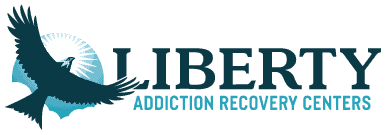
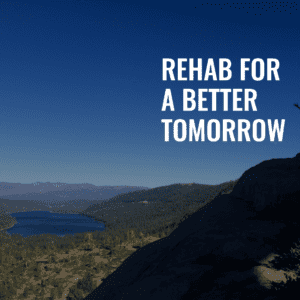 Evidence-Based Therapies in Utah Rehab Centers: A Comprehensive Guide
Evidence-Based Therapies in Utah Rehab Centers: A Comprehensive Guide




